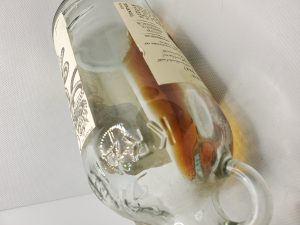DUI Law in Georgia
- Comments Off on DUI Law in Georgia

With car sharing apps like Uber and Lyft, why are people still getting caught driving under the influence? It literally makes no sense. However, because drunk driving is still trending around Georgia we will dedicate an article to DUI’s in Georgia, new case law that has changed the shape of DUI’s in Georgia, and what to do if you are caught driving under the influence.
DUI’s in Georgia:
Driving under the Influence (DUI) can occur in different ways. In Georgia, driving with a blood alcohol content (“BAC”) of 0.08 grams or more is per se unlawful (DUI per se), and regardless of BAC, it is unlawful for a person to drive under the influence of alcohol or drugs to the extent it is less safe to do so (DUI less safe). This means that you can still be arrested for a DUI even if your BAC was not 0.08, and instead 0.02. It is also important to note that you can also be arrested for driving under the influence of drugs like marijuana. See OCGA § 40-6-391.
The penalties for a DUI vary. Typically, driving under the influence results in an arrest and misdemeanor charges; however, certain aggravating circumstances can leave you facing felony criminal charges instead. Men and women convicted of a felony will serve their sentence in a state prison rather than a local jail, and felony convictions can make it extremely difficult to find a job in the future.
Any of the following circumstances could result in felony DUI charges in Georgia:
- If you have already been convicted of three previous DUI offenses.
- If you were caught driving under the influence while transporting minors.
- If you caused a serious car accident, property damage, injury, or death while driving drunk or under the influence of drugs.
Implied Consent Statute:
Measuring a person’s BAC is accomplished through a chemical test of the person’s breath, blood, or urine, and these tests typically require the cooperation of the suspect. When drivers are arrested for DUI, police officers ask them to submit to a chemical test; the implied consent statute prescribes the language the officers are required to use. OCGA §§ 40-5-55 (a), 40-5-67.1 (d).
Prior to Olevik v. State, ––– Ga. ––––,806 S.E.2d 505 (2017), if you refused to submit to a chemical test the state could use the fact that you refused against you in trial. However, the Court decided in Olevik that the state can no longer use the fact that you refused to submit to a chemical test against you. The Court held that this is a violation of your right against self-incrimination. If you are driving drunk, and you have to perform a physical act that proves you are guilty of driving drunk, you are therefore incriminating yourself. Georgia Supreme Court said NO you don’t now have to incriminate yourself and the fact that you didn’t incriminate yourself cannot be used against you!
Not too fast there is a caveat, Georgia Supreme Court did not make it that easy for drunk drivers. The police officer can still make you blow AFTER you are arrested. This is called a search incident to arrest. After you are lawfully arrested, the police can actually make you blow without a search warrant. However, you can still refuse to blow because it is still YOUR choice and what will most likely happen is they would request a warrant to draw blood.
What to do if you are arrested for a DUI:
If you get pulled over and you know that you have been drinking, even one drink, and the officer ask you to submit to a chemical test, our advice here at Bixon Law is to ask for your attorney. You have the right to against self-incrimination and we do not suggest you incriminate yourself in any way. This means we do not advise you to consent to any test, make the officers obtain a warrant. The way implied consent statute is formulated if you blow or if you don’t blow you are screwed either way; so just protect yourself by not consenting to anything and asking for an attorney from Bixon Law. We are available 24/7 to handle all your DUI needs.









